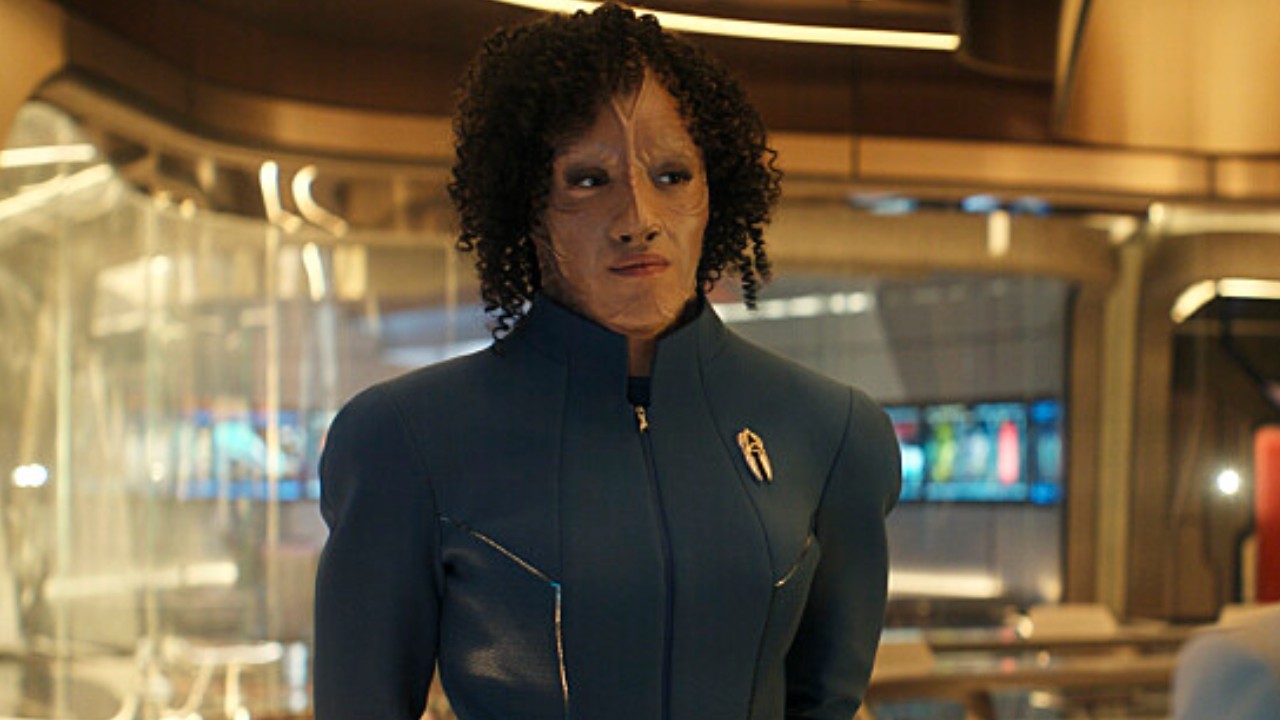Industry Blend: Most Underrated Video Game Of All Time: Omikron
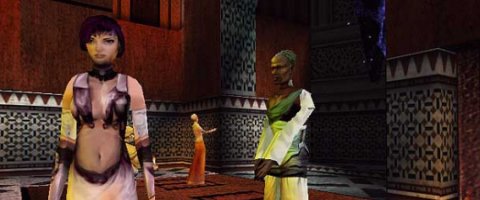
Your Daily Blend of Entertainment News
You are now subscribed
Your newsletter sign-up was successful
Does anyone remember the game Omikron: The Nomad Soul for PC and the Dreamcast? Yeah, I didn’t think so. Oftentimes when gamers think “underrated” they think of games like Demon Souls, Generations Lost, Virtual-On, Out of this World, The Getaway, LittleBigPlanet, Cyber Gladiators or Shadow of the Colossus. However, Omikron trumps everything else out there when it comes to being underrated just because it’s a game that represents what future games will inevitably become despite being 12 years old. It might sound like a paradox but keep reading, it'll all make sense.
Before talking about what makes Omikron the most underrated of all time, let's first discuss what actually makes a game underrated. Is it the review scores? The sales? The lack of influence on the industry? Or is it all of the above? Well, it’s a mix of all of the above but even more-so for the lack of staying power it has in the industry.
If you think about games like Sonic, Mario, Jagged Alliance, Command & Conquer, Grand Theft Auto, Street Fighter, Rainbow Six, Gran Turismo, Road Rash or even King’s Quest, you can still see the influence these kind of games have had on the industry throughout the history of gaming, even up to this very day. However, there are some games that -- despite having not only broke all kinds of tradition and put gaming on a completely different creative path -- have failed to spark sequels, spin-offs or incite long-lasting influence or appeal on the industry as a whole, and there’s only one game that sits at the top of that throne: Omikron: The Nomad Soul.
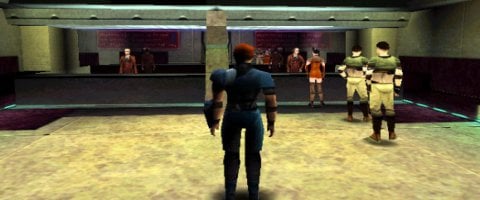
Designed by the same brilliant minds behind Fahrenheit and Heavy Rain, David Cage, Quantic Dream and David Bowie (yes, the singer) embarked on a remarkable development journey into the world known as Omikron, which released way back in 1999. The game, even throughout most of 1998, didn’t receive a heck of a lot of press and was mostly overlooked for Valve and Sierra’s Half-Life, Godgame’s Max Payne and, believe it or not, Team Fortress 2 (yeah, the game was jammed in development hell for a long time).
In mainstream media (or as close to it as gaming could get back then) there was a lot of fanfare about games like the original Perfect Dark, the PS2’s release and the Emotion engine. In the inner-sanctum of gaming news, there were popular titles like Vampire: The Masquerade - Redemption and Devil Inside, as well as over-the-top action titles like Heavy Metal: F.A.K.K. 2. Amongst all this carnage, chaos, scantily clad heroines and super-buff heroes, there was the one game that should have shaped the future of the industry but didn’t…Eidos and Quantic Dream’s Omikron: The Nomad Soul.
Every once in a blue moon news or assets would pop up for Omikron during its development, but it managed to shuffle through the media outlets as if it were a mid-card wrestler performing at a highly awaited pay-per-view: significant, but irrelevant. The unique thing about it is that the game itself was anything but a mid-card title. While reviews lambasted the texture quality of the characters and some of the model designs, the game itself was completely and entirely ahead of its time.
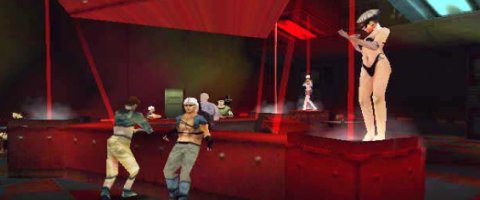
Back in early 1999 I managed to get my hands on a demo of the PC version of the game for the first time, and it was just unlike anything else out there. The story revolved around a cop from the world of Omikron who switches souls with you, the player, in hopes of saving his world and yours. Breaking the fourth wall was an interesting way to start the game and at the same time, gave players a glimpse at one of the main focal points of Omikron’s design: you could body hop. Since you were playing as your soul, you weren’t just limited to a single character, in fact, if I remember correctly (or incorrectly) there were over a 124 different bodies you could hop into. The game, however, was not like the 2000 PC title, Messiah, that followed Omikron’s release, in which players assumed the role of the angel named Bob, who could possess NPCs throughout the game world. Omikron was a much heavier role-playing experience than Messiah and far less violent. In fact, Omikron was very similar to games like Quantic Dream’s Fahrenheit, BioWare’s Mass Effect or Eidos’ other future-noir title, Deus Ex, insofar that the story unfolded progressively and required players to do a lot of investigative work as opposed to shooting everything in sight to move the story along.
Your Daily Blend of Entertainment News
One of the things that really marked this underrated title as a game that set it apart from everything else is that it preceded Rockstar’s 3D open-world design that was used in Grand Theft Auto III that arrived a few years later. That’s right, Quantic Dream was actually one of the first few developers to design an open-world 3D environment, complete with vehicles, NPCs and buildings you could walk into and explore. Heck, they even had “Hot Coffee” before “Hot Coffee” existed. However, that wasn’t the only feature that made Omikron standout despite the open-world aspect being such a huge accomplishment. The game also sported a cover-based first-person shooter system and a fleshed out 3D fighting mechanic equivalent to other fighting games on the market, such as Tekken or Battle Arena Toshiden.
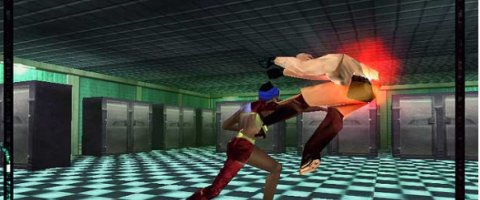
By now you’re probably questioning why you never heard of Omikron: The Nomad Soul. In all honesty, I don’t know. It’s a game that, at its core, could stand on its own as a fascinating cyber-noir story, yet it was so much more than that with all its revolutionary mixed-genre gameplay mechanics. Simply put, Omikron was the first and last game of its kind even compared to today’s standard of games.
I’m sure old-school gamers probably disagree about Quantic Dream’s sci-fi adventure title being the most underrated game of all time. I’m betting many of you feel games like Gabriel Knight 3, The Void, Redline, Anachronix or King’s Quest VIII: The Mask of Eternity are more worthy, but the thing is…Omikron still contained a lot of the gameplay elements from those aforementioned games, within its design (except for maybe Gabriel Knight 3’s proprietary, real-time, multi-tiered story progression system). I guess that’s just another added reason of why it was so great and yet so underrated.
Despite moderate sales and promises from David Cage that a sequel would eventually arrive, there hasn’t been any Omikron sequels, and there hasn’t been any game these last few generations that even come close to the gameplay or gameplay diversity of The Nomad Soul. I imagine, though, that with the next generation of consoles on the horizon there won’t be any excuses why games won’t eventually re-evolve to the point where we’ll be playing games as unique, diversified or as story-heavy as Omikron.
Staff Writer at CinemaBlend.

